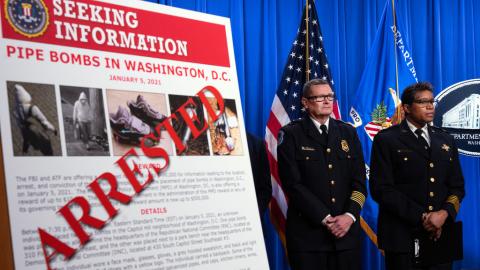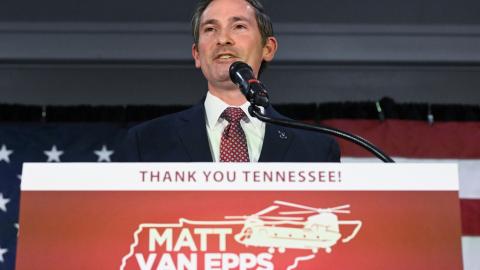
Recess Ruling Blow to White House, Win for Congress
The U.S. Supreme Court has unanimously voted to limit President Barack Obama's authority to bypass Congress and make recess appointments to high-level government positions.
Thursday's ruling addresses the constitutional separation of powers, limiting the president's power to fill top vacancies with temporary appointments.
"Today the Supreme Court unanimously rebuked the Obama administration for its lawlessness," stated Carrie Severino, chief counsel of the Judicial Crisis Network.
Jordan Sekulow, executive director of the American Center for Law and Justice, shared his thoughts on the hight court's recess appointments ruling below.
As part of it's decision, the court ruled the president's appointments to the National Labor Relations Board in 2012 without Senate confirmation were illegal.
Obama had invoked the Constitution's provision giving the president the power to make temporary appointments when the Senate is in recess.
But the justices pointed out the Senate was not actually in a formal recess when Obama made those labor appointments.
Justice Stephen Breyer said in his majority opinion that a congressional break has to last at least 10 days to be considered a recess under the Constitution.
Severino applauded the ruling, saying, "The recess appointments clause was never intended to give the president the ability to make appointments while the Senate was on a lunch break."
Obama is the first president to try to make recess appointments when Congress explicitly said it was not in recess.
"By striking down these appointments, the Supreme Court delivered a much-needed bench-slap to the Obama administration's contempt for the Constitution," Severino said.
The case challenging the appointments was brought by Noel Canning, a soft drink bottling company in Yakima, Washington. The company claimed an NLRB decision against it was not valid because the board members were not properly appointed.
"When President Obama appointed three members to the NLRB he blatantly circumvented the Congressional appointment process and overstepped his constitutional authority," Karen Harned, executive director of National Federation of Independent Business's Small Business Legal Center, said.
The high court did, however, leave open the possibility that future presidents, with a compliant Congress, could make recess appointments, as long as they happen while Congress is actually recessed.
"This case was never just about recess appointments," Harned said. "Ultimately, the case was about affirming the bedrock principle that this is a nation of limited government, where no one man can wield too great a power over our lives and livelihoods."
Thursday's ruling was the 13th unanimous loss for the Obama administration at the Supreme Court in the last two years.
The White House said it was "deeply disappointed" with the court's decision but vowed the president will continue to exercise his executive authority.
The ruling comes as House Speaker John Boehner, R-Ohio, is preparing a lawsuit against the president for abuse of executive power.



